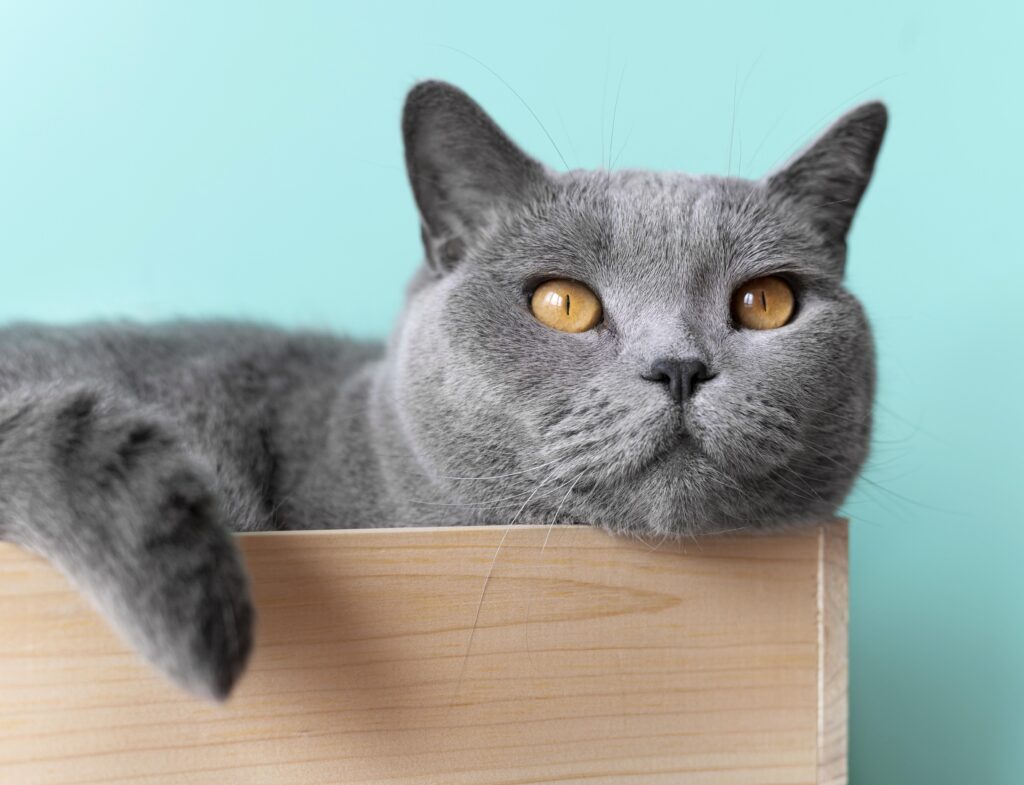Hey there, cat lovers! If you’re lucky enough to have a short-haired feline friend, you’re in for a treat. Short-haired cat is not only adorable but also relatively low-maintenance compared to their long-haired counterparts. However, keeping them in top shape involves more than just occasional petting. In this comprehensive guide, we’ll explore everything you need to know to ensure your short-haired kitty stays happy and healthy. From grooming routines to nutrition tips, we’ve got you covered!
Understanding Short-Haired Cats
Short-haired cats come in various breeds, including the sleek Siamese, the charming American Shorthair, and the playful British Shorthair. While their coats might be less demanding than those of long-haired breeds, understanding their specific needs is crucial. Each breed has its own unique traits, but all share the characteristic of short, manageable fur. This doesn’t mean they don’t require attention; rather, their care routines are often simpler yet still essential.
Grooming Your Short-Haired Cat
Even though short-haired cats require less grooming compared to their long-haired friends, regular brushing is still important. Aim to brush your cat’s coat once a week. This helps remove loose fur, minimizes shedding, and reduces the chances of hairballs. Use a soft-bristle brush or a grooming glove designed specifically for short-haired cats. Brushing also provides an opportunity to check for any skin issues or parasites, ensuring your cat’s coat remains healthy and shiny.
Bathing Your Short-Haired Cat
Bathing isn’t usually necessary for short-haired cats unless they get into something particularly messy or have a medical condition requiring regular baths. If you do need to bathe your kitty, make it a quick and stress-free experience. Use a cat-friendly shampoo that’s gentle on their skin and ensure you rinse thoroughly to avoid any residue. Always dry your cat completely with a towel and avoid using a blow dryer, as the noise can be unsettling.
Feeding and Nutrition
A balanced diet is crucial for maintaining your cat’s overall health. Short-haired cats don’t require special diets, but ensuring they receive high-quality food is essential. Look for cat food that lists meat as the first ingredient and includes essential nutrients like vitamins, minerals, and omega fatty acids. These nutrients not only support their general health but also contribute to a healthy, glossy coat. Always provide fresh water and avoid feeding your cat too many treats, as obesity can lead to various health problems.
Exercise and Play
Short-haired cats are generally energetic and playful. Regular exercise is important to keep them fit and prevent obesity. Engage your cat with interactive toys like feather wands, laser pointers, and treat-dispensing puzzles. Create a stimulating environment with scratching posts and climbing structures. Cats love to climb and perch, so adding vertical space, like cat trees or shelves, can enhance their playtime and satisfy their natural instincts.
Health Checkups
Regular veterinary checkups are key to preventing and addressing health issues. Short-haired cats are less likely to have coat-related problems but can still face issues like dental disease, parasites, or obesity. Schedule annual vet visits for routine examinations, vaccinations, and dental cleanings. Regular checkups can help catch potential problems early, ensuring your cat remains in good health.
Dealing with Shedding
While short-haired cats shed less than long-haired breeds, they still lose hair. Regular brushing helps manage shedding and keeps their coat in good condition. In addition to brushing, use a lint roller or a vacuum designed for pet hair to keep your home clean. A diet rich in omega fatty acids can also help reduce shedding and improve coat health.
Creating a Comfortable Environment
Your cat’s living environment plays a significant role in their well-being. Provide cozy resting spots, like soft beds or blankets, in quiet areas where your cat can retreat and relax. Scratching posts and climbing structures are essential for their physical and mental stimulation. Cats enjoy observing their surroundings from high vantage points, so incorporating vertical space into your home can enhance their comfort and happiness.
Monitoring Behavior and Health
Pay close attention to any changes in your cat’s behavior or health. Changes in appetite, litter box habits, or activity levels can indicate underlying issues. For example, a sudden decrease in appetite or increased thirst might signal health problems. If you notice any unusual symptoms or behavior changes, consult your vet promptly to address potential issues before they escalate.
Training and Socialization
Even though short-haired cats are relatively low-maintenance, socialization and training are important aspects of their care. Introduce your cat to new experiences, people, and other pets gradually to build their confidence and prevent fear-based behaviors. Positive reinforcement, such as treats and praise, can encourage good behavior and strengthen your bond with your feline friend.
Travel and Transportation
If you need to transport your short-haired cat, whether for a vet visit or a move, ensure their safety and comfort. Use a well-ventilated cat carrier and place familiar items like their favorite blanket inside to reduce stress. Avoid sudden movements or loud noises during travel to keep your cat calm and relaxed.
Conclusion
Caring for your short-haired cat involves a combination of regular grooming, proper nutrition, and attention to their overall well-being. By following these tips, you can ensure your feline friend enjoys a long, happy, and healthy life. Remember, each cat is unique, so always adapt your care routine to their individual needs and preferences.
